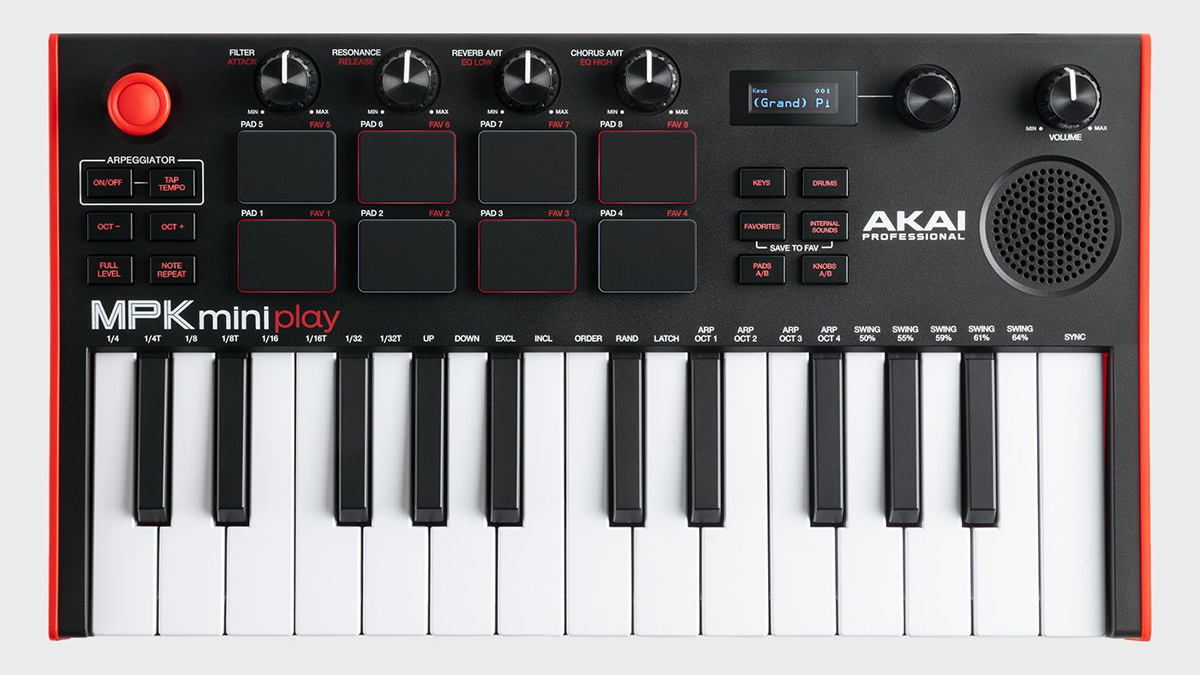Akai’s MPK Mini Play mk3 is both a compact MIDI controller and a portable keyboard with 128 built-in sounds
New model promises improved playability and a more powerful speaker
Not only a super-compact MIDI keyboard controller (though it most certainly can be that), Akai Professional’s MPK Mini Play mk3 is also a self-contained portable keyboard that offers 128 built-in sounds.
These cover acoustic/electric pianos, synths, pads, drum kits and more, and the fact that there’s a built-in speaker - a better, more powerful one than was in the original MPK Mini Play - means you can jam away without any other hardware. There’s also a 1/8-inch headphone jack so you can shut the world out when you need to.
Portability is further aided by a battery power option, which promises to give you more than 14 hours of runtime. You can also power the keyboard via USB.
The 25-note keyboard is said to be more playable before, with improved velocity response. With just two octaves to work with, though, there’s not going to be a great deal of scope for giving two-handed performances.
The eight velocity-sensitve drum pads, meanwhile, are now officially ‘MPC-style’ ones, while the four parameter control knobs have been moved above them. There’s an arpeggiator onboard, too, along with an OLED display.
MPK Mini Play mk3 ships with both MPC Beats, Akai's own DAW, and three plugins from Air Music Technology: the Hybrid 3 analogue synth, the Mini Grand acoustic piano, and Velvet, a vintage electric piano instrument. You also get the Melodics educational package, an interactive music learning resource.
Find out more on the Akai Pro website. The MPK Mini Player mk3 costs $150.
Get the MusicRadar Newsletter
Want all the hottest music and gear news, reviews, deals, features and more, direct to your inbox? Sign up here.




I’m the Deputy Editor of MusicRadar, having worked on the site since its launch in 2007. I previously spent eight years working on our sister magazine, Computer Music. I’ve been playing the piano, gigging in bands and failing to finish tracks at home for more than 30 years, 24 of which I’ve also spent writing about music and the ever-changing technology used to make it.
![PRS Archon Classic and Mark Tremonti MT 15 v2: the newly redesigned tube amps offer a host of new features and tones, with the Alter Bridge guitarist's new lunchbox head [right] featuring the Overdrive channel from his MT 100 head, and there's a half-power switch, too.](https://cdn.mos.cms.futurecdn.net/FD37q5pRLCQDhCpT8y94Zi.jpg)








